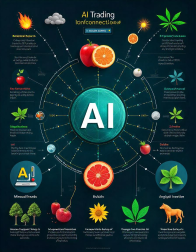 Balcony gardens are becoming more common in Singapore condos, including developments such as Pinery Residences Tampines, where residents are exploring ways to maximise limited space. Rising food prices, higher electricity bills, and limited space have pushed many residents to look for small, practical ways to cut daily costs. A balcony garden seems simple. Add plants, grow some food, and cool the home. But does it really reduce living costs in a meaningful way, or is it more about lifestyle than savings? The answer sits somewhere in between.
Balcony gardens are becoming more common in Singapore condos, including developments such as Pinery Residences Tampines, where residents are exploring ways to maximise limited space. Rising food prices, higher electricity bills, and limited space have pushed many residents to look for small, practical ways to cut daily costs. A balcony garden seems simple. Add plants, grow some food, and cool the home. But does it really reduce living costs in a meaningful way, or is it more about lifestyle than savings? The answer sits somewhere in between.Can Balcony Gardens Reduce Living Costs in Singapore Condos?
 Balcony gardens are becoming more common in Singapore condos, including developments such as Pinery Residences Tampines, where residents are exploring ways to maximise limited space. Rising food prices, higher electricity bills, and limited space have pushed many residents to look for small, practical ways to cut daily costs. A balcony garden seems simple. Add plants, grow some food, and cool the home. But does it really reduce living costs in a meaningful way, or is it more about lifestyle than savings? The answer sits somewhere in between.
Balcony gardens are becoming more common in Singapore condos, including developments such as Pinery Residences Tampines, where residents are exploring ways to maximise limited space. Rising food prices, higher electricity bills, and limited space have pushed many residents to look for small, practical ways to cut daily costs. A balcony garden seems simple. Add plants, grow some food, and cool the home. But does it really reduce living costs in a meaningful way, or is it more about lifestyle than savings? The answer sits somewhere in between.Rural Housing Challenges: Using Rental Deposit Guarantees in Agricultural Communities
Access to affordable housing remains one of the biggest challenges in rural and agricultural regions. Many tenants in these areas struggle to secure housing due to high upfront costs, such as rental deposits. These deposits, often required before moving into a new home, can be a significant barrier for individuals who may already be living paycheck to paycheck. As agricultural communities often rely on seasonal work or have fewer job opportunities, this becomes an even more critical issue for tenants seeking stable housing.
A potential solution to this growing problem is using rental deposit insurance, a tool designed to ease the burden on tenants by covering the cost of the rental deposit. Rental deposit insurance pays tenants a smaller premium than a large lump-sum deposit. This arrangement benefits both landlords and tenants by offering a secure way for landlords to protect their property while making housing more accessible for renters (source: mietkautionsversicherung by DirectDeposit).
How Rental Deposit Guarantees Work

Rental deposit guarantees function similarly to insurance. Tenants pay a smaller, more manageable fee to an insurance company, which then guarantees the full rental deposit to the landlord. The insurance company assumes financial responsibility if the tenant damages the property or fails to meet other obligations. For landlords, this offers a level of security without the need to manage large upfront deposits. It provides tenants immediate access to rental properties without the heavy burden of securing a deposit.
With rental deposit guarantees, tenants are able to move into homes much faster, which is particularly important in agricultural communities where housing shortages are common. These guarantees can make it easier for seasonal workers, young people, and low-income families to secure stable living conditions. This solution can be a game-changer for agricultural areas, which often lack extensive housing infrastructure.
If you’re a tenant or landlord interested in exploring how rental deposit guarantees work, companies like DepositDirect offer simple and affordable solutions. Their services can help tenants navigate the complexities of moving into a rental property without the stress of saving up large deposit amounts.
The Impact on Agricultural Communities
Agricultural communities face unique challenges when it comes to housing. Many people in these areas work in seasonal roles or industries that do not provide the same financial stability as urban jobs. Because of this, it can be harder for individuals and families to save for significant upfront costs, including rental deposits. This has led to housing insecurity in many rural areas, where the available rental housing is either outdated or prohibitively expensive.
Using rental deposit guarantees provides a solution by making housing more affordable for these tenants. With this system in place, renters no longer have to worry about finding a large sum of money to secure housing. This can make a significant difference for agricultural workers facing unpredictable income, allowing them to focus on their jobs and families rather than financial burdens.
By lowering the barrier to entry for housing, rental deposit guarantees also help stabilize communities. Agricultural regions often face fluctuating populations due to seasonal work, making it hard to establish long-term housing markets. When tenants can secure housing more easily, they are more likely to stay in the area, helping to create stronger, more stable communities.
Benefits for Both Landlords and Tenants
For landlords in rural and agricultural areas, rental deposit guarantees offer several benefits. Most notably, they still have the protection of a deposit without worrying about handling large sums of money upfront. This makes it easier for landlords to rent out properties quickly, as they can rely on the guarantee to cover any potential damages or unpaid rent.
Additionally, landlords in rural areas may find it more challenging to fill vacancies, especially when competing with larger urban markets. By accepting rental deposit guarantees, landlords can attract more tenants, increasing the chances of maintaining a full rental portfolio. This can be especially important in areas with low available rental properties.
On the other hand, tenants benefit from a more accessible rental process. They no longer have to delay their move-in dates while saving for a large deposit. With smaller premium payments for rental deposit insurance, they can move in quickly and focus on their job or lifestyle. This is particularly beneficial in agricultural regions, where workers may not have the time to wait for a traditional deposit to be saved.
Overcoming Housing Shortages in Rural Areas
Rural and agricultural areas often face housing shortages due to limited supply and high demand. Seasonal workers, in particular, may find it difficult to find affordable rental housing for short-term stays. This can lead to overcrowded living conditions or even homelessness in extreme cases. By offering rental deposit guarantees, more tenants can gain access to available properties, reducing housing shortages and improving living conditions for many families.
Rental deposit guarantees encourage landlords to rent their properties to a broader pool of tenants. In agricultural communities where the population may be more transient, offering flexible housing options can help mitigate the effects of housing shortages. Tenants, in turn, benefit from more choices and the ability to move into secure housing without the financial strain of a large deposit.
READ ALSO: Renters Insurance Comparison And The Types of Farm Insurance Coverage
Conclusion
As housing challenges continue to impact agricultural communities, rental deposit guarantees provide a practical and beneficial solution. By making housing more affordable and accessible, these guarantees offer a win-win for both tenants and landlords. Tenants in rural areas can secure housing without the burden of hefty deposits, while landlords enjoy financial security and a steady stream of tenants. With the ongoing demand for affordable housing, rental deposit insurance could play a vital role in easing housing challenges and improving the overall quality of life in agricultural regions.
Read MoreHow Forex Trading Impacts Finance and Agriculture

The foreign exchange (forex) market is the largest financial market in the world, with daily trading volumes exceeding $6 trillion. This vast market influences the financial industry and sectors like agriculture, which rely on global currency fluctuations for international trade. As forex trading continues to grow, both individual traders and institutions turn to advanced tools like forex robots to navigate the complex dynamics of the market and maximize their profits.
How Forex Robots Play a Role in Agriculture
Agriculture commodities like wheat, corn, and soybeans are often traded internationally. Farmers and agribusinesses engage in forex trading to hedge against unfavorable currency fluctuations that may affect their profits. Agricultural businesses can protect themselves from market volatility by using a forex robot—an automated system designed to perform trades without human intervention. Forex robots can quickly respond to currency changes, helping these businesses optimize their earnings in real time. You can learn more about these tools at Forex Flex EA.
Currency Fluctuations and Agricultural Pricing
Agriculture is deeply impacted by the movement of exchange rates, especially for countries heavily involved in exporting or importing agricultural products. For instance, a farmer in the U.S. exporting wheat to Europe would benefit from a strong U.S. dollar. On the other hand, a weak dollar may reduce profits as foreign buyers need more of their currency to purchase the same amount of wheat.
However, exchange rates don’t remain static. They fluctuate daily based on market conditions, economic data, and geopolitical events. When prices shift drastically, it can significantly affect the agricultural supply chain. As a result, farmers and producers increasingly monitor the forex market to protect their revenue.
Hedging and Risk Management in Agriculture
One of the most common ways agricultural businesses utilize the forex market is by hedging their risks. Hedging allows farmers and corporations to lock in prices for their goods, regardless of how the market behaves. A forex trader working with an agricultural company might buy or sell a currency pair to offset a potential loss in the future.
The introduction of forex trading in agriculture has also led to the growth of other financial instruments, such as forward contracts, futures, and options. These tools help farmers stabilize their costs by guaranteeing a set price for commodities in the future despite market volatility. For instance, a farmer selling coffee may enter into a forward contract in the forex market to ensure they get a fixed exchange rate for their sales months down the line.
The Role of Technology in Forex Trading
Forex trading has evolved drastically over the years, with technology playing a crucial role. Forex robots and artificial intelligence (AI) now assist traders in making data-driven decisions, executing trades at high speeds, and analyzing complex market patterns. This technology benefits not only individual traders but also large-scale agricultural producers.
With AI-driven tools, agricultural businesses can better predict market trends and respond to real-time fluctuations. The use of algorithms and forex robots allows traders to take advantage of minute-by-minute changes in exchange rates, helping to minimize losses and secure profits.
Forex and Sustainable Agriculture
Sustainability is becoming a focal point in agriculture, and surprisingly, forex trading contributes to this. For example, businesses engaging in sustainable farming practices might use forex trading to source eco-friendly materials or export their products to countries where sustainable goods command a higher premium.
Moreover, agricultural companies now use technology to streamline supply chains, making cross-border transactions more efficient. With real-time forex trading, businesses can optimize the timing of their transactions, saving money and reducing waste. As a result, forex trading is increasingly intertwined with the growing demand for more sustainable and efficient agricultural practices.
READ ALSO: Agriculture in the World of Finance and CFD Trading Apps
How to Get Started with Forex Trading in Agriculture
For farmers and agribusinesses interested in forex trading, the process involves:
- Understanding currency pairs and how they impact international trade
- Using forex robots or automated systems for efficient trading
- Learning about different forex strategies like hedging, scalping, or swing trading
- Collaborating with financial experts to assess market risks and make informed decisions
- Regularly monitoring exchange rates and global economic indicators
By staying informed and utilizing advanced forex trading tools, agricultural businesses can enhance their operations and secure their bottom line against volatile currency markets.
Conclusion
Forex trading is not just for Wall Street traders; it profoundly impacts various industries, including agriculture. From hedging risks to optimizing cross-border transactions, the foreign exchange market offers valuable opportunities for agricultural businesses. With the help of technologies like forex robots, businesses can better navigate the complexities of global markets, ensuring their profitability even amid fluctuating exchange rates.
As agriculture expands globally, keeping an eye on forex trends will be essential for success. Understanding forex can help you secure a more stable financial future, whether you’re a large agribusiness or a small farmer.
Read MoreGrowing Trend: Sustainable Investing Sprouts in Agriculture
Finance & Agriculture: Fintech Harvests New Opportunities in Ag Finance
The agricultural sector transforms digitally as innovative financial technologies (fintech) disrupt traditional services. Fintech solutions are being tailored to address the industry’s unique needs, ranging from equipment financing to streamlining supply chain payments. This transformation is critical – by 2050, the demand for food will jump by a staggering 70%, necessitating substantial investments. Emerging fintech companies focus on agricultural lending, commodity trading platforms, and dedicated farm banking, providing solutions for an industry that plays a vital role in the global economy. As these technologies continue to mature, they promise to unlock new levels of efficiency and accessibility in agriculture finance, paving the way for sustainable growth.
Read MoreThe Role Of Finance In Agriculture
Agriculture is the backbone of many economies, providing food, raw materials, and employment opportunities to billions of people worldwide. Finance plays a pivotal role in supporting and advancing the agricultural sector, enabling farmers to enhance productivity, adopt modern technologies, and ensure food security.
Access to Capital
One of the primary roles of finance in agriculture is to provide farmers with access to the capital they need to operate their farms effectively. This capital can be used for purchasing seeds, fertilizers, machinery, and other inputs necessary for agricultural production. Without access to capital, many farmers would struggle to invest in their farms and increase their yields.
Risk Management

Agriculture is inherently risky due to factors such as weather conditions, pests, and market fluctuations. Financial instruments like insurance and derivatives can help farmers manage these risks. Crop insurance, for example, can provide protection against losses caused by adverse weather events, giving farmers peace of mind and stability.
Read MoreRevolutionizing Agriculture: How BitAI Can Transform the Future of Farming

In recent years, technological advancements have been reshaping various industries, and agriculture is no exception. The integration of artificial intelligence (AI) into farming practices has shown immense potential to enhance efficiency, yield, and sustainability. One such innovation is BitAI, a groundbreaking application of AI technology in agriculture. In this article, we will explore how BitAI can help revolutionize the agriculture sector and its potential effects on farming practices. Check out bitai-methods.com to learn more about BitAI.
Understanding BitAI
BitAI, short for “Blockchain-integrated Artificial Intelligence,” represents the fusion of two cutting-edge technologies: blockchain and AI. Blockchain technology provides a secure and transparent platform for data storage and management, while AI algorithms offer predictive and analytical capabilities. The convergence of these technologies can empower farmers and stakeholders with real-time insights, leading to informed decision-making and optimized resource allocation.
Advantages of BitAI in Agriculture
- Precision Farming: BitAI can enable precision agriculture by analyzing vast amounts of data collected from various sources, such as weather patterns, soil conditions, and crop health. This data-driven approach helps farmers make informed decisions regarding planting, irrigation, fertilization, and pest control, resulting in higher yields and reduced resource wastage.
- Supply Chain Transparency: Blockchain technology within BitAI can enhance traceability in the agricultural supply chain. It can accurately track the journey of produce from farm to table, ensuring food safety and quality. Consumers can gain insights into the origin and production methods of the products they purchase, fostering trust and promoting sustainable practices.
- Smart Resource Management: AI algorithms integrated with blockchain data can optimize resource allocation. By analyzing historical and real-time data, BitAI can suggest the optimal amount of water, fertilizers, and other inputs required for specific crops, minimizing waste and environmental impact.
- Pest and Disease Management: BitAI can predict and identify potential pest and disease outbreaks by analyzing patterns and historical data. Early detection allows farmers to take preventive measures, reducing the need for excessive pesticide use and safeguarding crop health.
- Financial Inclusion: BitAI can improve access to financial services for small-scale farmers who often lack formal credit histories. Through blockchain-based smart contracts, farmers can secure loans and insurance coverage based on their agricultural data and performance, enabling them to invest in their farms and mitigate risks.
- Climate Resilience: With climate change posing challenges to traditional farming practices, BitAI can help farmers adapt. By analyzing climate data, the system can recommend crop varieties that are more resilient to changing conditions, promoting sustainable and reliable food production.
Potential Challenges and Considerations
While the integration of BitAI in agriculture holds promise, several challenges must be addressed:
- Data Privacy: Ensuring the privacy and security of sensitive agricultural data stored on the blockchain is crucial to gain trust from farmers and stakeholders.
- Access and Adoption: Small-scale farmers and those in remote areas might face challenges in accessing and adopting BitAI technology due to limited infrastructure and resources.
- Technical Expertise: Farmers need adequate training and support to effectively use BitAI tools, which may require investment in education and training programs.
You might also want to read about Finance And Agriculture: The Vital Connection.
Conclusion
BitAI represents a remarkable convergence of AI and blockchain technology with the potential to transform agriculture fundamentally. Its applications in precision farming, supply chain transparency, resource management, and climate resilience have the power to enhance productivity, sustainability, and profitability in the sector. However, successful implementation requires addressing challenges such as data privacy, access, and technical know-how. As the agricultural industry continues to evolve, BitAI offers a glimpse into a future where technology and farming unite to feed a growing global population while preserving our planet’s resources.
Read MoreIs Financial Management Important In Agriculture?
Financial management plays a crucial role in the success and sustainability of agricultural operations. While the heart of agriculture lies in planting, nurturing, and harvesting crops, effective financial management is the backbone that ensures these operations run smoothly and profitably.
Budgeting for Optimal Resource Allocation
Agricultural enterprises require various resources, such as seeds, fertilizers, equipment, and labor. Effective financial management involves creating budgets that allocate these resources efficiently. By estimating costs and revenues, farmers can make informed decisions about crop selection, input purchases, and labor allocation, ultimately maximizing profits.
Investment and Growth
Sound financial management enables farmers to identify opportunities for growth and expansion. Whether it’s investing in modern technologies, expanding acreage, or diversifying crops, a well-managed financial strategy provides the necessary capital and insights to fuel agricultural development.
Read MoreFinance And Agriculture: The Vital Connection
In today’s interconnected world, the relationship between finance and agriculture is more crucial than ever before. Agriculture plays a fundamental role in providing food and resources for the global population, while finance ensures the necessary capital and investment to support agricultural development and sustainability.

The essential connection between finance and agriculture
The financial sector plays a vital role in supporting agricultural operations by providing farmers with access to capital for purchasing equipment, seeds, fertilizers, and other necessary inputs. Additionally, financial institutions offer insurance products that protect farmers against unpredictable weather conditions or crop failures.
On the other hand, agriculture also greatly impacts the financial sector. Agricultural commodities such as grains, livestock, and dairy products are traded on commodity exchanges worldwide. These markets provide opportunities for investors to diversify their portfolios and hedge against price volatility.
Read MoreWhat Are The Benefits Of Financing Agriculture?
Financing agriculture is the process of providing financing or capital to a farmer in order to improve their productivity and quality.
The benefits of financing agriculture include improved quality, increased productivity, increased profits, and reduced risk for the farmer.

Reasons Why Financing Agriculture is Vastly Beneficial for Small Farmers
Agriculture is one of the most important sectors on our planet. It provides food, water, and other resources for humans. But with climate change, rising global population, and increasing urbanization, it becomes more difficult for farmers to grow their crops. With this in mind, financing agriculture becomes a necessity for small-scale farmers who might not have enough capital or access to loans from traditional financial institutions.
In countries like India and China where there are high rates of poverty, many people turn to farming as a source of income. This is why it’s crucial that these countries have policies that support financing agriculture so that they can continue to produce food on a large scale.
Read MoreConnection Of Finance And Agriculture
The connection between finance and agriculture is a complex one, with many different variables to consider. From understanding the role of technology in agriculture to assessing the financial implications of agricultural investments, there are many aspects to consider when looking at this connection.

Relationship between finance and agriculture
Agriculture is the backbone of any economy. It provides food, fiber, and other resources that are essential for economic growth. However, in order for farmers to be able to produce these resources, they need access to financial capital. This is where finance comes in. it provides the necessary funds for farmers to purchase land, equipment, and other inputs needed for agricultural production.
Without access to finance, farmers cannot make investments in their farms or increase their production levels. Thus, the relationship between finance and agriculture is an important one. Without adequate financing from financial institutions or investors, agricultural production would suffer significantly.
Read MoreFinancial Tips For Agricultural Producers
Agricultural producers are the entrepreneurs of the field. They must focus on improving productivity with all the decisions they make in their company.

Tips for agricultural producers to take care of their finances
With the proper management of economic resources, producers can achieve productive stability to a large extent. Given this, the first tip for producers to protect their finances is to identify sources. They have to write down all the sources of income, expenses, and expenses generated on the farms.
The second tip is to make non-financial contributions visible. The third tip to generate a culture of caring for finances in the field is to identify access to credit.
Read MoreHow To Manage Your Finances As A Farmer
Managing personal finances is an extremely complex matter. Of course, it is primarily a question of which personal income and expenses are most important to you. However, when you take a closer look at your finances, you should always take into account what you want from your future.

Tips for managing private finances
Provide overview
Get a realistic overview. Account for all regular monthly income and expenses. Make a plan about it.
Make the right investments
Do not let your money fall into oblivion in the savings stockings, but get a professional overview of which investments are worthwhile at the right time. You can invest your money in securities or real estate.
Read MoreFinancing In The Agricultural Sector
With greater utilization, higher yields, and larger areas, the production processes in modern agriculture leave less and less room for failure. Downtime can be expensive. Therefore, a continuous review or renewal of your machines is necessary, if necessary, for the expansion of the fleet.

The concept for your financing
The preparation of a financing concept includes the following aspects, among others.
- Determine capital requirements
- Create investment plan
- Examine financing alternatives
- Include possible funding
The acquisition of agricultural equipment is capital-intensive. You should therefore ensure that you have sufficient insurance coverage for your machinery.
Read MoreThe Financial Partner For Agriculture
Agriculture makes an important contribution to the security and quality of supply in worldwide. But in order to be able to survive in the face of competition, farms have to repeatedly invest heavily in machines and farmland.

The financing partner for farmland and agricultural land
Farmland acquisition is not only relevant to economic and operational growth in the agricultural sector. If you buy agricultural land, you are also using an important form of investment. Some bank supports farming in the financing of agricultural land. Together with financial institutions, you can develop financing solutions that fit your needs and your liquidity history. Long-term financing plans to protect your liquidity are also possible.
Read MoreTowing Entrepreneur: Take Care Of Your Finances
The quality of an entrepreneur is not only measured by the health of his company, but also by the health of his private finances. What if the key to success was to manage them like your company’s finances, that is, with foresight, rigor and backed by the expertise of professionals?
Separate your personal and professional finances
The top priority when managing your assets is that private expenses must not be met with company funds. Your private assets should not be used to cover operating costs or to secure any liabilities of the company. In addition, the private use of loans that your company has taken out is prohibited.
This does not mean that you cannot receive dividends if the operating result allows it, nor that you cannot secure a bank loan for your company with a personal guarantee. The goal is to get a clear view of your personal and professional finances before the question of any interactions arises. As a result, the first task is to clearly separate your personal accounts from your work accounts. Only then do you determine what proportion of your private assets you are willing to invest in your company projects.
Separating work and personal finances allows for sound management of your finances. This also proves your professionalism and increases the trust of your bank, for example when you apply for financing.

Managing your personal finances
No responsible Towing San Jose CA entrepreneur would think of neglecting his company’s finances. Why should this be any different with private finances? Manage them in the same way and use the same tools as you do for your professional finances.
The personal balance sheet showing your assets and liabilities. This balance sheet of your financial assets gives you an overview of your situation at a specific point in time.
It shows your regular income and your expected expenses. This allows you to estimate the development of your financial assets and make adjustments if necessary.
In accordance with your professional goals, you create reserves to expand your business activities, to renew your company’s equipment and for innovation purposes. Do the same with your private assets. A major purchase, your retirement, or the inheritance you’ll bequeath to your children are also goals that require careful planning. You should manage your private finances just as conscientiously as your professional finances.
Read MoreHigh Economic Performance Of Agriculture
Agriculture, forestry and fisheries are still important economic sectors as part of the national economy.
Agricultural purchases support the rest of the economy
Farmers demand many resources, capital goods and services. Primarily, the small and medium-sized businesses from trade, crafts and trades have economically close relation to agriculture.

Many farms also use a wide range of services. These range from advice on maintenance work to animal health and quality monitoring. Production-related expenditure in agriculture can amount to billion dollars every year. Government use finances from the agricultural sector to invest in machinery and buildings.
Read MoreSustainability And Financing In Agriculture
Sustainability means the preservation and at the same time intelligent use of natural resources. There is a challenge when it comes to sustainable management.
The development goes from classic agriculture to the sustainable management of renewable raw materials not only for nutritional purposes. In addition, industry players have to deal with related issues such as environmental protection, animal welfare and the production of high-quality food.

Industry-specific financing solutions for the agricultural sector
For companies that are active in agriculture, fast and easy financing options play an important role.
Corporate loan
A company loan can usually provide a quick remedy for production peaks. For example, this is ideal when financing operating resources.
Factoring
Selling receivables is a good way to obtain short-term liquidity without having to use expensive lines of credit.
Corporate leasing
Leasing is a liquidity-friendly financing option. No collateral is required.
Read MoreFinance and Productivity of Agricultural Firms
Agriculture is the main source of income among the rural poor worldwide. Agricultural growth can decrease rural poverty rates quicker and more efficiently. One significant vehicle to attain growth in the industry is finance.
What is preventing farmers and agricultural businesses to obtain finance?
Geography is a major reason. The large geographical dispersion of clients and low population density in the countryside make it hard for banks to work at a profitable scale. The absence of financial institution outlets has translated into a limited provision of saving and credit products to agribusinesses and farmers.
A second factor preventing financial institutions has something to do with the general risk related to agricultural activities. When adverse weather conditions happen, they naturally affect a big number of firms and farmers instantaneously. This makes it more difficult for financial providers to expand their portfolio of clients. When one client fails to pay, many others will be in the same situation. The political motives or paternalistic behaviour that governments may have can aggravate this problem.
Read MoreBenefits Of Smart Finance For Farms
In some key areas, it is particularly important for farms to have an adaptable and smart financing model. The circumstances in a global economy are constantly changing. Those who recognize this early on and react to it with the appropriate financial means can continue to increase sales and survive against the competition.
Investments in modern technologies become possible
Automated processes in ordering, harvesting, sorting and processing now enable an efficient increase in sales. It can help to increase the quality of the products. Factoring is the right financing option for agriculture. Thanks to quick liquidity, you can invest in new technologies and implement the restructuring of your own company. In this way, you can fully exploit the growth potential and initiate modernization processes.
Read MoreHow Agriculture Financing Help Farmers
If you have an agriculture business, you are aware that farming can be costly. The costs of running and starting up a farm can be overpowering. Probably, you’ll need financing especially if you’re new to the industry. This is where agricultural financing comes in.
Agriculture financing to buy farm equipment
If you’re just beginning out in the agriculture industry, you may considerably underestimate the value of specialized equipment. Thoroughly research the costs and options for the equipment you’re going to need before you over commit. Make sure it fits into your business plan.
Consider consulting with other people that have experience in the industry to get their insight on what kind of equipment you’ll need.
Read MoreFinancing The Agriculture Sector
Agriculture plays an immense role in the life of people, especially in developing countries. It has a great impact on people living in rural areas. Numerous people rely on agriculture as a source of their daily income.
Nevertheless, getting agricultural finance can be a problem for most farmers. Numerous people are not able to access financial support for their agricultural needs. This can possibly be a limitation for farmers to grow. This could be an issue for them not to benefit from new technology and devices that can expand in their agricultural needs. All these new devices and technology can help increase production and proficiency.
Use of financial machinery in the agriculture industry
The finance sector has a key role to play in permitting agriculture to contribute to poverty reduction and economic growth. A speedily evolving technological landscape is opening up new possibilities to target and price credit. At the same time, many difficulties are not technological. Thus, it is vital to seek strategic places where investment and policy can help to increase outcomes for agricultural households.
Read MoreFinancing the Agriculture Sector
The sector of finance has a main role to play in letting agriculture contribute to poverty reduction and economic growth.
Importance of financing Agriculture
Agriculture finance take on vital and substantial importance in the development of agro, socio, economic of a country. This is both at the macro and micro levels.
Financing agriculture can play a catalytic part in augmenting the production of scarce resources. In addition, it plays a crucial role in strengthening the farm business.
Developing access to finance can raise the investment choices of farmers. This can provide them with more efficient tools to handle risks.
Read MoreFinancial and Agriculture Sector
In this modern world of financial inclusion and economic development, it is sometimes tempting to oversee the basics that promote growth.
Success in the financial and agriculture sector

One basic is the agriculture industry and its relationship to the success and growth of the financial sector. Upon a quick observation of the two industries, the contrasts could not be more obvious. The financial industry, with its exchange markets, banks, and insurance companies, can perceive a realm for success. It is where money is abundant. On the other hand, people perceive the agriculture sector with its smallholder farmers with limited resources as the realm for limited opportunities.
It is very vital to understand that finance and agriculture must go hand in hand. This way, they can reach the heights of their possible success.
Read MoreCareers in Agriculture
When people hear about Agriculture they relate this word to just farming. This persists because farming is the corner stone of the Agriculture industry. But we have to understand that there is much diversity in agriculture. Here are some misconceptions about what you think about Agriculture.
- Planting something in the ground, harvesting and selling the crops.
- It’s a career that brings you nowhere.
- You have to actually grow up in a farm to have a career in Agriculture.
- It’s a heavy and sweaty work but in reality it is innovation driven.
In agriculture there is endless possibilities and opportunities. It may not be easy but you can be successful in choosing a career in Agriculture. Here are some careers you can pursue in this Industry.

- Agricultural Operation’s Manager. The average annual salary is $61,080.00.
- Animal geneticist. The average annual salary is $68,840.00.
- Food Scientist. The average annual salary is $71,990.00
- Agricultural engineer. The average annual salary is $74,480.00
- Agronomy Sales Manager. The average annual salary is $76,470.00
- Bioinformatics Scientist. The average annual salary is $80,200.
- Environmental Engineer. The average annual salary is $86,800.00
- The average annual salary is $91,190.
- Agricultural economist. The average annual salary is $104,920.00.
- Agricultural lawyer. The average annual salary is $115,820.00
Sustainable Agriculture in Brazil
Sustainable agriculture is vital to a nation’s economic and climate goals. It limits deforestation while increasing crop yields. It boosts climate resilience while generating income. An emerging trend in sustainable agriculture is ICLF, or Integrated-crop-livestock-forest systems. In Brazil alone, it has the goal of implementing 500 million hectares of ICFL systems by 2030 to reduce greenhouse gas emissions. Yet, ICLF adoption rates remain low. This is mainly due to credit line that are poorly adapted for its implementation and lack of information.

The Sustainable Agriculture Finance Facility, or SAFF, is a vehicle to increase the adoption of ICLF through a combination of accessible and customized credit lines, a unique certification system, specialized technical assistance and a certified sustainable suppliers’ market. A bundle of five credit lines will be offered to compliant farmers for costing, soil correction, cattle, machinery and forestry. In addition, farmers certified by the SAFF earn a unique trust score which is updated weekly. This will allow for better credit evaluation and environmental monitoring.
Read MoreBlended Finance for Agriculture
The future of the environment and businesses are closely interlinked. Climate change now poses the biggest and most obvious threat to the global economy over the next decade. Market and reputational risks as well as regulatory pressure on companies linked to unsustainable soft commodity production means current business practices need to change. With many already exposed to potential stranded assets. So how do we redirect private capital to avoid forest and biodiversity loss. We should improve and educate local communities and ensure that the agricultural sector thrives through profitable business models.

Combining the capabilities of banks, government agencies, and agri-businesses through blended finance instruments is key to transforming the way we finance sustainable land use. There are already some organizations that started this program and it finances many sustainable agricultural businesses. The success of this program will lure other banks, investors and agribusinesses to finance projects that combine financial performance with clear environmental and social benefits. It is impossible to achieve sustainable development if we cannot finance it. Both the private and the public sector should work together to achieve this goal.
Read MoreHow Banks Grant Loans to a Farmer
The decision to lend by any bank ultimately depends on a client’s ability to repay the loan. This in turn is also dependent on the client’s cash flow. Insufficient cash flows equal non-repayment. No matter what the size or scale of the farmer’s estate or reputation, a bank will its knowledge and agricultural expertise to estimate cash flow of a farmer. The banks decide whether the farmer will be able to repay the loan. Sector specific knowledge will also be used to shape the terms of the loan and establish how best to monitor the client throughout the season so as to be able to quickly spot any issues. Lending to farmers and assessing cash flows presents a number of challenges less prominent in other sectors.

Cash flow with agricultural production is not regular. It is somewhat lumpy. When producing a crop the farmer will often need to invest on seeds, fertilizers, pesticides, labor, maintenance and harvesting upfront. Yet farmers will only receive an income from their crop once they have harvested and marketed it. Depending on the crop, the farmer may only receive income once or twice a year. This lumpiness needs to be taken to account when scheduling loan disbursements and repayments. Banks will typically monitor a loan performance based on the receipts of regular payments taking an early action when payments are delayed. When loans are repaid with just one payment at the end of the season however banks may want a regular visit to the farm throughout the period of the loan. This allows them to check in with their borrower and insure that crop production is on-track. Along with the regularity of payments, farmers yield and prices in agricultural production will also vary from season to season.
Often based on factors beyond their control such as the weather. A loan officer ensure they factor in any potential fluctuation and use appropriate sensitivity when forecasting cash flow for an agricultural client. The loan officer needs also to appreciate that small holder incomes and expenses are not solely reliant on agriculture production. But it needs to be considered in relation to the entire households’ finances. Cash flow forecasting must assess the household’s position in its entirety with repayment capacity based on whether they is sufficient household cash after all expenses have been considered. Essentially a bank should only lend to farmers if they can accurately assess the household’s complete financial situation and projected cash flow throughout the loan period. Otherwise there’s a risk of being caught out come payment time.
Read More
The Role of Land Banks and Agricultural Cooperatives in the Agricultural Sectors
Agriculture plays a very important role in the development of a nation’s economy. It contributes a big percentage in a country’s GDP and the population depends upon this sector. But most of the times farmers are faced with the problem of inadequate financial state. Professional money lenders are the easiest way for farmers to get credit. With the creation of Land Development Banks and Agricultural Cooperative, farmers were able to seek help from these establishments which has contributed so much in the improvement and development of the agricultural sector. They advance credit mostly for agricultural purposes.

The creation of Agricultural cooperative has also help in the sector’s improvement. Through agricultural cooperatives farmers can pull their resources in certain areas of activity. They provide services to their farming members. The cooperative is mostly founded and managed by farmers. The farmers pool their resources to improve the way they produce and sell. The agricultural products raised in their farms like milk, fruits, meat and vegetables are collected and processed by their cooperatives. They become the products that the community eat and consume.
Read MoreFinancial Opportunities in Agriculture in Developing Countries
People in rural areas in some developing countries earn their living through farming and agriculture. Oftentimes these farmers experience difficulty in obtaining financing for their farming needs. This can greatly impact their production. In reality this is a troubling situation to many farmers in this countries. Many organizations have been established to provide special financing services to these farmers that are adaptive to their needs. This will allow them to improve their living conditions and at the same time help it will increase their self-sufficiency for food production. Access to financial services is still a great problem to some areas in developing countries.

Financial Services and products which are offered to farmers:
- Deposit services
- Loans
These loans and deposits can finance the purchase of the following:
- Fertilizers and seeds
- Equipment needed to modernize production
- Warehouse credit
- Micro processing and commercialization
Read More
New Innovations in Agriculture
Over the next decades a new innovation will revolutionize the efficiency of farms all over the world. It will be a breakthrough in the Agriculture sector. This will not come soon enough but. In the year 2050 it is estimated that the human population will be nearly 10 billion. This means we need to double the amount of food we now produce. To attain this, it needs the intervention of the government, and all sectors in the society. We also need to consider how to finance this.

The changes brought about by technology specifically in farming has allowed farmers to do other things in life. There has also been a surge in productivity.
Examples of innovations in agriculture are:
- Autonomous Picker. This machine can work twice as fast as humans do.
- Robotic weed and Pest killers. Instead of manually removing the weeds, this device uses lasers to zap the weeds away. This has a big impact in Agriculture since many crops are destroyed by pest and disease.
- Micro-sensors. This sensor monitor crop growth and will alert farmers in their smart phone if there’s a problem or when the crops are ready to harvest.
- Robotic Soil Sampler. It takes and liquefies soil samples to know its Ph and phosphorous levels all in real time.
This are just a few, note that there are many more innovations in Agriculture.
Read MoreSustainable Agriculture
Vegetable farmers in many places especially in rural areas rely heavily on the use of synthetic fertilizers and pesticides, which are not only toxic but costly. Thus farmers sometimes get sick, face declining incomes and in the process destroy the environment and endanger the health of not only them but the consumers. This is significant because it poses a big risk to both consumer and the farmer. Many organizations are actively promoting viable alternatives through environment-friendly farming technologies and innovations. Bio dynamic farming is one option for this. It has the principles of practicing farming technologies that adhere to chemical free farming.
Sustainable Agriculture
Read More
The Importance of Financing in Agriculture
Agriculture plays a big role to the life of people especially in developing countries. It has a great impact on people living in the rural areas. Many rely on Agriculture as a source of their daily income. However access to agricultural finance may be a problem for most. Many are not able to get financial support for these agricultural needs. This maybe a hindrance for farmers to level up. This can be a factor for them not to avail new technology and devices that can improve in their farming and agricultural needs. All these new technology and devices can help increase proficiency and production.

With the coming years there is a high demand for food and other agricultural products. In this case the agricultural system should improve. The only way to attain this is by acquiring the newest agricultural devices and technology. These are good investments that would allow farmers to produce more.
Read MoreAgricultural Financing For Farmers
With today’s advance and changing world, new technologies have emerged in the agricultural sector. It’s needed and important to increase the production in farming. Every farmer wants to avail of this new technology however not all can afford an upgrade. Farmers specially in developing countries cannot afford to have this technology. They do not have the capital and money to purchase the newest equipment and tools. Because of this they opt to stick with the traditional way of farming because there is nothing they can do.

Farmers need money or capital to increase one’s production. Farmers need to adapt and embrace the newest technology that can help them in their farming needs. This in return will yield better harvest and production. But not all farmers have the capital and money to spend for this. This is where they seek farm financing. Farm Finance has become vital to these farmers because it can help them gain the needed money for financing various farm resources. Aside from banks credit agencies are also available in some rural areas. They can assist farmers with their capital needs by providing credit to farmers. However, the credit policies, credit rationing, interest rates and other factors can have a significant bearing on farm returns.
Read More
Expanding The Agricultural Industry to Guarantee Food Security
Howard Buffett: Farming and finance
Uses Of Agricultural Loans
Loans, whether short term or long term, secured or unsecured, could be very helpful for many persons and businesses. Citrus Loans, for example, offer a broad array of loan options and alternatives that could match and meet your needs for credit. If borrowers aren’t successful at applying for a loan in one of their major products, they do still have other alternatives that could fit the borrower’s needs.
In the industry of agriculture, farmers could also apply for a loan to use in their farming business. Just like any other form of business, operating and managing a farm or any agricultural business comes with its own set of challenges as well. Although the industry of agriculture has its particular challenges to surmount, there is a challenge that individuals in the industry of agriculture, such as ranchers, farmers and entrepreneurs, that similar to other business owners encounter form time to time, the need for capital and other financial concerns.
It is without a doubt that owning and running a ranch, a farm, or any other business under the industry of agriculture go together with immense heavy expenses and financial needs which are usually used to buy large heavy ranch or farming equipment, purchasing land, and/or for paying their employees and business operations. Frequently a business owner couldn’t deal with such financial challenges alone, and these expenditures could swiftly stack up if left unsettled, leaving business owners, even the most equipped, struggling to keep the business going. This is where agricultural loans enter.
Agricultural Loan Uses
Agriculture or Agricultural loans are purposely allotted for agriculture use, and careful and responsible use of the loan could aid in the success of your agricultural business.
But prior to applying for one, you have to formulate a plan on how to use the loan the proper way, primarily where and what you need the money for as well as how much you need. Below are some agricultural loan uses to consider so you won’t end up mismanaging your funds.
Procure Equipment and Supplies
You can’t efficiently operate a farm if you lack the equipment specially designed for your farming needs, such as tractors, silos and irrigation systems. Great-quality, reliable farm equipment would last a bit longer and make job much easier, however such equipment could be quite costly since you have to take into account operational costs and supplies such as fuel, repair and maintenance, seeds, fertilizer and others. So, assess what equipment you need, whether you need a new one or would only need repairs. Additionally, compare prices so you could determine how much you need to loan and that you would be able to pay it off.
Covering Cost of Land
Agriculture loans could be utilized to buy or lease a land. Buying or leasing a farmland could be complicated. Moreover, the type of land you require will rely on the type of farming you intend to do. Again, evaluate your needs and decide the amount you need to borrow.
For Land Enhancement & Repairs
Farms require regular upkeep to run efficiently and productively. Agriculture loans could be utilized for pricey improvements or repairs/maintenance to land and/or infrastructure. However, such improvements and upkeep could help further the value of your land, better your products and make more efficient your business. With consumers being very conscious nowadays, you’ll need to keep with most recent trends in land care as well as ethical farming.
Other Uses:
- Refinancing of a Previous or Older Loan
- Advertising and Marketing Efforts
- Covering Costs of Operation
- Rebuilding Following a Natural Calamities
Cash Crops and Cash Flow: Finance Meets Agriculture in May 2025

Brazil’s meatpacking giant JBS posted strong Q1 earnings, shrugging off trade war fears. Meanwhile, agricultural commodity prices are dipping slightly, creating a mixed bag for farmers and investors. Finance and agriculture are intersecting in exciting ways this month.
JBS Defies Trade Tensions
JBS, a major player in Brazil’s meat industry, reported better-than-expected earnings, per Reuters. The company credits robust global demand for beef and poultry. Despite tariff concerns, JBS sees minimal impact from U.S.-China trade shifts. This resilience is boosting confidence in agribusiness stocks.
Commodity Prices Take a Breather
The World Bank notes a 2.6% drop in non-energy commodity prices, including food and raw materials. Corn and soybeans are slightly down, but fertilizer prices ticked up 0.7%. Farmers face tighter margins, prompting financial strategies like hedging to manage risks.
Financing the Farm Future
Agriculture is leaning on finance for growth. Trends shaping the sector include:
- Increased investment in sustainable farming tech
- Rising use of commodity futures for price stability
- Growing remittances supporting rural economies
Bloomberg highlights how remittances from workers abroad fuel agricultural communities, especially in countries like Mexico. As finance and agriculture align, expect smarter, greener farming solutions.
Read MoreHow AI Trading is Revolutionizing Finance and Agriculture
Trade is not an exception; artificial intelligence (AI) is revolutionising sectors, including ours. Faster and more precise choices than humans could ever make are made by AI-powered trading algorithms, which examine enormous volumes of data in real-time. One particularly noteworthy example is Taragon Opulon AI, a modern platform using machine learning to maximize AI trading methods in finance and industry.
The Emerging AI in Trade Manual Analysis
Let’s see the following details:
Historical Tendencies and Human Intuition Defining Traditional Trade
 Though these techniques have been used for decades, they are sometimes slow and prone to mistakes. Artificial intelligence transforms the game by rapidly digesting market data, news, and even social media mood. It finds trends, forecasts price swings, and runs transactions at the ideal moment, free from human bias.
Though these techniques have been used for decades, they are sometimes slow and prone to mistakes. Artificial intelligence transforms the game by rapidly digesting market data, news, and even social media mood. It finds trends, forecasts price swings, and runs transactions at the ideal moment, free from human bias.
Taragon Opulon AI: Changing Games
Taragon Opulon AI distinguishes itself by focusing on agriculture and finance. It enables traders in financial markets to maximize gains by examining stock movements, currency swings, and economic data. In agriculture, meanwhile, technology helps farmers and businesses by forecasting commodity prices, streamlining supply networks, and even projecting weather effects on crop output.
Taragon Opulon AI distinguishes itself by its adaptability. Unlike strict algorithms, it develops over time by learning from changes in the market, therefore improving its approaches. Whether your business is farming, hedging against price declines, or day trading, this AI solution offers practical insights catered to your demand.
The Benefits of AI Trading
The details below show the advantages of AI trading in the industry.
Instant Data Processing
AI trading is faster than human execution of transactions. AI minimizes expensive mistakes by removing emotional decisions, so lowering risk. AI never sleeps, hence 24-hour market monitoring guarantees you never miss a chance.
Automated trading lowers overhead expenses and lessens the demand for big teams, so it saves money.
Artificial Intelligence in Agriculture: An Intelligent Investment
Farmers deal with erratic difficulties like supply chain interruptions, price instability, and floods. Analysing world market trends, weather data, and crop reports enables Taragon Opulon AI to propose the ideal times to buy, sell, or store produce. Should soybean prices fall next month, for instance, the AI might advise early sales to maximise gains.
The Futuristic Development of AI Trading
As artificial intelligence develops, its influence on trading will only become more evident. Not only business professionals but everyone now has access to sophisticated financial tools because of platforms like Taragon Opulon AI. AI trading presents smarter, data-driven judgements that increase profitability, whether your business is running a farm or handling investments.
The main lesson here is that AI is a great friend for everyone trying to keep ahead in banking or agriculture; it is not only for IT behemoths. Taragon Opulon AI marks the smarter-than-ever future of trade, with technologies like these.
Read MoreCashing Out Small Payments and Seasonal Farm Labor: Payment Strategies for Growers
For many agricultural companies, especially in areas like Clewiston where harvests are time-sensitive and labor-intensive, seasonal farm labor is the lifeblood. Managing the financial aspect of this temporary labor creates special difficulties, though. Effective handling of small, regular payments is vital; knowledge of techniques for cashing out small payments 90 (소액결제 현금화 90) – or similar payment windows – will greatly affect a grower’s labor relations and bottom line.
The Special Difficulties with Seasonal Farm Labor Payments
Seasonal farm workers might need regular, lower wages, unlike workers on permanent salary. This is resulting from:
Daily or Weekly Wages
Many employees are paid depending on hours worked or units produced, which leads to different pay rates either daily or weekly.
Piece-Rate Systems
Some crops are paid per bushel or crate—cause varying income.
Short-Term Employment
The transient character of the employment calls for fast and dependable payment cycles.
Cash-Based Transactions
Certain employees could want or depend on cash payments; hence, particular handling practices are needed.
Techniques for Effective Payment Control
Growers can use many techniques to meet these needs:
Digital Payments
Prepaid debit cards or mobile payment apps help to simplify payments, cut cash handling, and offer digital records.
These systems reduce the risk of lost or stolen money and make fast transfers possible.
Clear Payment Plans
 Worker satisfaction depends on well-defined payment plans being established and shared.
Worker satisfaction depends on well-defined payment plans being established and shared.
Regular payment times and days help to establish dependability and trust.
Comprehensive Record-keeping
Compliance and dispute resolution depend on accurate records of hours spent, units produced and paid for. Systems of digital record-keeping help streamline this procedure.
Adaptable Payment Choices
Providing a mix of payment choices—direct deposit, cash, or mobile transfers—fits different worker preferences. Using solutions like a 90-day cashing out system that enables rapid turn around on payments would help to significantly raise worker satisfaction.
On-site Payment Facilities
Establishing on-site payment facilities for bigger operations can help to enhance efficiency and cut worker commute time. In rural farms especially, this is crucial.
Compliance with Labor Laws
Growers have to follow all relevant labor rules concerning minimum wages, overtime, and frequency of payments. This covers reporting and correct documentation.
Advantages of Revised Payment Plans
Adopting sensible payment plans has several advantages.
- Timely and consistent pay helps to raise worker satisfaction and lower turnover.
- When paid promptly, employees are more likely to be motivated and efficient.
- Digital payment systems and simplified procedures help to lower administrative burdens by reducing documentation and paperwork. Digital transactions and accurate record-keeping help to increase financial openness and control.
- Correct paperwork and labor law compliance help to lower the legal dispute risk.
Giving effective payment techniques top priority would help growers to establish close ties with their seasonal staff, increase output, and guarantee the seamless running of their agricultural companies.
Read MoreSmart Farming Meets Smart Finance: How Automated Investment Strategies Are Transforming Agriculture

Artificial intelligence (AI) is revolutionizing industries, and agriculture is no exception. Farmers and investors now leverage automated investment strategies to maximize profits, improve efficiency, and ensure food security. With AI-driven tools, agricultural investments are becoming more data-driven, reducing risks and increasing returns.
As the agricultural sector embraces digital transformation, investors discover new opportunities to grow wealth through AI trading. AI-powered analytics, predictive modeling, and machine learning are helping investors make smarter financial decisions in farming, from crop selection to risk management.
The Rise of Automated Investment in Agriculture
Traditional farming investments often relied on intuition and experience. However, modern technology has introduced automation, allowing investors to use data-driven insights to optimize agricultural investments. AI platforms analyze market trends, soil conditions, and climate patterns to accurately forecast yields and profitability.
Automated investment platforms use machine learning to assess risks and suggest the best strategies for maximizing returns. These tools consider multiple factors, including weather fluctuations, global trade policies, and consumer demand, making more precise and efficient investment decisions.
How AI-Driven Tools Are Changing Agricultural Investments
AI-driven investment platforms are helping both large-scale and small-scale investors make informed decisions. These technologies assist in various aspects of agricultural finance, including:
1. Predictive Analytics for Crop Selection
AI algorithms analyze historical data to determine the most profitable crops in a region. By considering factors such as climate, soil quality, and market demand, investors can make data-backed choices that improve returns.
2. Automated Risk Assessment
Risk assessment is crucial in agriculture. AI tools evaluate potential risks of weather, pests, and market instability. Investors can implement preventive measures to safeguard their investments by predicting challenges before they arise.
3. Smart Irrigation and Resource Management
Water and fertilizer use can be optimized through AI-powered systems. These technologies analyze soil moisture levels and recommend precise irrigation schedules, reducing waste and increasing efficiency.
4. Market Trend Analysis
AI-driven platforms monitor global trade trends, consumer preferences, and commodity prices. By providing real-time data, investors can adjust their strategies to meet market demand.
The Impact on Global Food Security
Automated investment strategies are enhancing profitability and addressing global food security challenges. By optimizing resource use and reducing waste, AI-driven tools help farmers produce more food with fewer resources.
Additionally, these platforms enable investors to support sustainable farming initiatives. AI-powered precision agriculture techniques promote environmentally friendly practices, reducing the carbon footprint of food production.
READ ALSO: Understanding Current Trends and Their Implications for the Future
The Future of AI in Agricultural Investments
As technology continues to evolve, AI-powered investment strategies will become more sophisticated. Future advancements may include blockchain integration for transparent supply chains, drone-based monitoring for real-time crop health assessments, and robotic automation for harvesting.
The synergy between smart farming and smart finance will continue to drive innovation, making agriculture more profitable and sustainable. Investors who embrace AI-driven solutions today will be better positioned to capitalize on the future of agricultural finance.
Conclusion
Automated investment strategies are transforming agriculture by providing data-driven insights and reducing risks. AI-driven platforms empower investors to make informed decisions, optimize resource allocation, and enhance profitability while promoting sustainability. Integrating smart finance into farming will pave the way for a more secure and efficient agricultural industry as technology advances.
Read More
The Future of Agricultural Investments
Agricultural Innovation on the Rise
The agriculture industry is experiencing a revolution with new technologies and sustainable practices. Investors are increasingly drawn to agricultural stocks, seeking growth in a sector that promises long-term returns through innovation.
Green Investments and Sustainability
As sustainability becomes more critical, investors are looking for green solutions. Agricultural technologies that focus on improving crop yields while reducing environmental impact are gaining traction. Precision farming, using drones and sensors, is changing the way crops are grown.
Financial Trends in Agriculture
Finance and agriculture are becoming closely intertwined, with more funding directed at sustainable agricultural practices. The financial industry is stepping up, providing capital for innovative farming solutions, and pushing the industry towards a more sustainable future.
Read MoreFinance & Agriculture: The Rising Costs of Food Production
Inflation and Supply Chain Issues Impacting Agriculture
Agriculture is feeling the heat of rising costs as farmers worldwide grapple with inflation, supply chain bottlenecks, and increased input prices. Fertilizers, seeds, fuel, and machinery have all seen price hikes in recent months, making it harder for farmers to profit. This directly affects consumers, with food prices soaring and threatening food security in some regions.
How Inflation Affects Farmers
Farmers face a tough choice: raise prices or absorb the costs. Many choose the former, leading to higher prices for everything from wheat and corn to meat and dairy. This trickles down to consumers who are already battling rising living expenses. Additionally, disruptions in the global supply chain, particularly the transport of agricultural goods, have caused delays in food production, making things even more challenging.
The Role of Agriculture in the Economic Recovery
Agriculture remains the backbone of many economies, and its struggles have far-reaching implications. Policymakers are working on ways to support the sector, from subsidies to grants for small-scale farmers. With food demand expected to increase as the global population grows, finding sustainable solutions to agriculture’s rising costs will be essential.
Read MoreFinance & Agriculture: Investing in the Backbone of the Economy
The Role of Agriculture in Finance
Agriculture is a fundamental part of the global economy, providing food, raw materials, and employment to millions. It’s also an investment opportunity, with commodities like wheat, corn, and soybeans offering ways to diversify portfolios. Agricultural investments are often tied to the performance of natural resources and weather patterns.
Sustainable Agriculture Investments
As sustainability becomes more critical, the agriculture sector is evolving. Investors are increasingly looking at sustainable farming practices, including organic farming, renewable energy in agriculture, and water conservation technologies. These innovations not only benefit the planet but also offer new financial opportunities.
Agriculture Commodities as a Hedge
Agricultural commodities can act as a hedge against inflation. When the prices of goods and services rise, so do the costs of agricultural products, making them a valuable addition to an investment portfolio during inflationary periods.
Read MoreUnderstanding Current Trends and Their Implications for the Future

The global economy is experiencing profound changes driven by technological advancements, shifting consumer behaviors, and evolving geopolitical dynamics. As countries adapt to the rapid pace of change, understanding these trends becomes essential for businesses and individuals alike. Economic globalization has interconnected markets, leading to increased competition and innovation. However, this interconnectedness also exposes economies to risks such as trade tensions, supply chain disruptions, and inflationary pressures. In this context, monitoring economic indicators—such as gross domestic product (GDP), unemployment rates, and consumer confidence—is crucial for assessing overall economic health.
Moreover, sustainability has emerged as a significant focus within the economy. As climate change and environmental concerns gain prominence, businesses are increasingly adopting sustainable practices. Consumers are demanding transparency and accountability, pushing companies to prioritize eco-friendly initiatives. Governments are also implementing policies that promote sustainable development, including renewable energy investments and carbon reduction targets. This shift toward sustainability is not just a trend but a necessary evolution for future economic resilience. By understanding these dynamics, businesses and individuals can make informed decisions that align with long-term economic stability, ensuring they are well-prepared to navigate the challenges and opportunities of an ever-changing global landscape.
Read MoreAgriculture in Climate Finance

Agriculture in climate finance refers to the strategic allocation of financial resources to support agricultural practices that are resilient to climate change and contribute to reducing greenhouse gas emissions. This approach, often termed climate-smart agriculture (CSA), integrates sustainable farming techniques with financial mechanisms to enhance productivity while mitigating environmental impact. Climate finance in agriculture aims to provide farmers, especially smallholders, with access to capital for adopting innovative technologies and practices that improve crop yields, conserve water, and reduce carbon footprints. By leveraging both public and private investments, climate finance helps build a more sustainable and resilient agricultural sector capable of withstanding the adverse effects of climate change.
The importance of agriculture in climate finance is underscored by the sector’s significant contribution to global greenhouse gas emissions and its vulnerability to climate-induced events such as extreme weather and changing precipitation patterns. Climate finance initiatives focus on creating enabling environments for sustainable agricultural practices, including providing technical assistance, improving access to markets, and developing risk management tools. These efforts not only enhance food security and farmer livelihoods but also contribute to broader climate goals by promoting practices that sequester carbon and reduce emissions. As the global community intensifies its efforts to combat climate change, integrating agriculture into climate finance strategies is essential for achieving sustainable development and environmental resilience.
Read MoreFarm Property Settlement During Divorce
The process involving division of assets after a divorce can be complicated and difficult. There are different set of challenges for couples owning farms together especially when it comes to divorce. The treatment of farms, the farm’s contents and ownership structure, and the necessity of selling the farm are all relevant considerations in family law property settlements.
How do Farms Fare Concerning Property Settlements in Family Law
 Farms and farming-related issues do not have their own set of regulations. The same standards of the law applies and uses by the court when division of assets following a divorce is concerned. This is regardless if the property is a farm owned by a family.
Farms and farming-related issues do not have their own set of regulations. The same standards of the law applies and uses by the court when division of assets following a divorce is concerned. This is regardless if the property is a farm owned by a family.
Here are the criteria that should be considered when you need to settle your property covered by the Family Law Act of 1975:
- Discover the assets and liabilities of a relationship and provide them values.
- Compute for the contributions of each party involved whether monetary or non-monetary.
- Find out what each of your future requirements is.
- Think about whether the proposed split is fair and reasonable under all conditions.
There may not be any hard and fast laws when it comes to farming, but the high stakes, complicated ownership history, multiple owners, and combination of personal and business/commercial assets can make property settlement negotiations a real pain.
Particular Considerations in Farm Property Settlements
Important considerations in settling property disputes involving farms include the following. Among them are:
- When you and your ex-partner first started living together, did the farm already exist? Would you happen to have any idea of the farm’s worth right now? Was the farm bought or passed down through generations?
- Does your relationship revolve around the farm? The farm and all of its parts make up what percentage of the total asset pool?
- In your respective roles as farmers and financial partner for agriculture, what have you accomplished? How much money did you make from tending to the farm?
- Looking forward, what do you and your ex-partner require from one another? For example, was it difficult for a partner who wasn’t a farmer to make a living outside of farming since they spent so much time working on the farm?
The question of whether one parent may have to move the children to a different city or state is an important one to consider in cases involving children and farming. When parents separate in rural or regional locations, it might be more challenging for them to remain in close proximity to their children than in urban areas. This is because of differences in housing, job prospects, and access to resources.
Seek Family Lawyer’s Advice
As you can see, there is a lot to consider when negotiating property settlement involving a family farm. No matter what you are going through, or deciding to get a divorce, settlement of property is the primary aspect of the things that you need to collaborate with your previous partner. Consulting with family lawyers or property settlement lawyers Perth may help you out to extract the necessary details to go on.
Read MoreSelling Gold to Fund Agriculture: Financing Sustainable Farming Practices

Funding the agriculture sector is crucial to ensure food security, promote sustainable practices, and support rural livelihoods in the face of evolving environmental and economic challenges. Innovative solutions are essential to support sustainable agriculture initiatives. One such solution gaining traction is leveraging the value of gold to fund farming practices that prioritize environmental sustainability and resilience. By channeling proceeds from gold sales into agricultural development, we can empower farmers to adopt modern techniques, invest in essential equipment, and enhance crop yields for a more robust food system.
The Role of Gold in Financing Agriculture
Gold has long been prized for its intrinsic value and stability in the global market. Now, it’s emerging as a catalyst for positive change in the agricultural sector. By selling gold to a reputable gold buyer online, individuals and organizations can unlock funds to support farmers in implementing sustainable practices. This innovative approach offers a win-win scenario, benefiting both the environment and agricultural communities.
Advantages of Financing Agriculture with Gold
- Stability: Gold prices tend to remain relatively stable, providing a reliable source of funding for long-term agricultural projects.
- Accessibility: With the rise of online platforms, selling gold has become more accessible than ever, enabling individuals to contribute to agricultural development from anywhere in the world.
- Flexibility: Unlike traditional financing options, gold-backed funding offers greater flexibility in terms of repayment and investment strategies, empowering farmers to tailor solutions to their specific needs.
Supporting Sustainable Farming Practices
The funds generated from selling gold can be directed towards various initiatives aimed at promoting sustainable agriculture:
- Adopting Environmental Practices: Farmers can invest in techniques such as organic farming, agroforestry, and water conservation to minimize environmental impact and preserve natural resources.
- Investing in Technology: Modern agricultural equipment and technologies, such as precision farming tools and renewable energy systems, can enhance efficiency and productivity while reducing reliance on fossil fuels.
- Enhancing Crop Resilience: By diversifying crop varieties and implementing climate-smart practices, farmers can build resilience against extreme weather events and changing environmental conditions.
Case Studies: Gold-Powered Agricultural Development
1. Smallholder Farmers in Sub-Saharan Africa
In regions like Sub-Saharan Africa, smallholder farmers often lack access to adequate financing to invest in sustainable practices. By partnering with local organizations and gold buyers online, initiatives have successfully funded projects ranging from soil conservation programs to community-led irrigation schemes, empowering farmers to improve livelihoods and protect natural ecosystems.
2. Agri-Tech Innovations in Southeast Asia
In Southeast Asia, rapid urbanization and agricultural intensification pose significant challenges to food security and environmental sustainability. Through innovative financing models leveraging gold assets, startups and social enterprises are pioneering solutions such as vertical farming, smart irrigation systems, and blockchain-enabled supply chains, revolutionizing the way food is produced and distributed in urban settings.
READ ALSO: Gold & Silver Are Best Finance Investment
Conclusion
As the global community seeks to address the interconnected challenges of food security, environmental sustainability, and economic development, leveraging alternative financing mechanisms like gold-backed funding offers a promising avenue for catalyzing positive change in the agricultural sector. By harnessing the value of gold to support sustainable farming practices, we can create a more resilient and equitable food system for future generations.
Read MoreEmpowering Your Financial Journey: How Credit Cards Serve as Effective Tools for Managing and Optimizing Your Finances

Individuals are constantly seeking ways to empower their financial journey. One powerful tool that stands out in this pursuit is the credit card. This article aims to explore the multifaceted role of credit cards, from understanding their basics to maximizing their benefits.
Introduction
Financial empowerment is the key to achieving personal and professional goals. Understanding how credit cards play a crucial role in this journey is the first step towards making informed financial decisions.
Understanding Credit Cards
Credit cards are versatile financial instruments that offer convenience and flexibility. Dive into the definition of credit cards and explore the various types available in the market.
Benefits of Credit Cards
Uncover the hidden advantages of credit cards, such as cashback rewards and the significant impact on building a robust credit score.
Choosing the Right Credit Card
Not all credit cards are created equal. Learn about the factors to consider when selecting the right credit card that aligns with your financial goals.
Responsible Credit Card Usage
To truly harness the power of credit cards, responsible usage is paramount. Discover practical tips for effective credit card management.
Common Misconceptions
Separate fact from fiction by debunking common myths surrounding credit cards. Understand the realities behind potential pitfalls.
Credit Card vs. Debit Card
Compare the pros and cons of credit cards and debit cards, helping you make an informed decision based on your financial preferences.
Impact on Credit Score
Explore how credit card usage can influence your credit score, with insights into both positive and negative contributing factors.
Overcoming Financial Challenges
Address credit card debt head-on with actionable solutions. Discover effective strategies for managing and eliminating credit card debt.
Maximizing Rewards and Perks
Unlock the full potential of your credit card by exploring additional benefits such as travel perks and purchase protection.
Technology and Credit Cards
Stay ahead in the digital age with insights into the role of technology, including the rise of contactless payments in the credit card industry.
Future Trends in Credit Card Industry
Get a glimpse into the evolving features of credit cards and how industry trends are shaping the future of financial transactions.
Case Studies
Delve into real-life success stories of individuals who have effectively utilized credit cards to enhance their financial standing.
Staying Informed
In a rapidly changing financial landscape, staying informed is key. Explore ways to keep up with financial news and updates.
Stay informed about credit card with this article: Sowing Seeds of Prosperity: Mortgages, Agriculture, and Financial Planning
Conclusion
As we conclude our exploration of credit cards, it’s essential to recap the key takeaways and encourage readers to embark on their financial journey with confidence.
Read More
The Uncanny Relationship between Finance and Agriculture
In an effort to achieve sustainable development, finance and agriculture must find ways to work together. Innovative solutions like inheritance loans and probate advances have emerged, reshaping how financial instruments contribute to the resilience of agriculture.
Financing Growth in Agriculture
Whether you believe it or not, agriculture relies heavily on financing as a means of driving growth. It provides farmers and agricultural businesses the necessary funds to invest in modern technology, equipment, and seeds. Traditional financial institutions and innovative fintech companies offer tailored financial products that cater to the farming sector, using their digital platforms and data-driven solutions.
These financial instruments provide support and enable farmers to optimize their operations, improve productivity, and contribute significantly to the food supply chain.
Mitigating Risks through Financial Tools
The agricultural industry is exposed to various risks that can be unpredictable, such as weather patterns and market fluctuations. The finance sector offers a range of tools that help manage these risks. For example, insurance products can cover losses due to adverse weather conditions, commodity futures allow farmers to lock in prices and protect against market volatility, and innovative financial derivatives can hedge against various other risks.
The tools available in the agricultural sector can act as a protective shield for the stakeholders. These tools offer security and aid in overcoming challenges with ease and resilience, helping agricultural stakeholders navigate uncertainties.
Sustainable Agriculture Financing

Financing has become a key driving force behind adopting eco-friendly practices in agriculture as the global focus on sustainability intensifies. Financial institutions have evolved from being mere funders to becoming champions of initiatives that promote sustainable farming techniques, agroecology, and environmentally conscious practices.
This has positively impacted the environment and positioned agriculture as a significant player in addressing climate change concerns, fostering a sense of responsibility and optimism for the future.
The connection between finance and agriculture is apparent in our economic system. These two sectors work together to encourage growth, decrease risks, and support sustainability, resulting in a balanced relationship that positively impacts communities and countries.
Understanding and acknowledging the significance of exchanging information between the agricultural and financial sectors is paramount as we face the trials and tribulations of the contemporary world. It is imperative to grasp the immense significance of the statement above in guaranteeing a robust and prosperous future.
Read MoreUnlocking Financial Privacy: The Transformative Role of Cryptocurrency Mixers in Securing Transactions
Traditional payment systems often lack the anonymity users seek, leading to a surge in interest in alternative methods. Cryptocurrency, with its decentralized nature, has emerged as a frontrunner, offering a glimpse into a more confidential financial future. Cryptocurrency mixers, in particular, play a transformative role in bolstering the security of these transactions.
Understanding Financial Privacy Concerns
Before delving into the intricacies of cryptocurrency mixers, it’s imperative to comprehend the pressing concerns surrounding financial privacy. In an era dominated by digital transactions, the vulnerability of personal information is a constant worry. Traditional financial systems, tethered to centralized entities, can expose users to surveillance, identity theft, and other privacy infringements.
Cryptocurrency’s Promise of Anonymity
Cryptocurrency, with its decentralized and pseudonymous nature, promised a paradigm shift in addressing these privacy concerns. However, the transparency of blockchain technology, while revolutionary, has raised its own set of challenges. This is where cryptocurrency mixers step in to offer a solution.
The Genesis of Cryptocurrency Mixers
Cryptocurrency mixers, also known as tumblers or blenders, were conceived as a response to the transparency of blockchain ledgers. These innovative tools operate by pooling and mixing transactions from multiple users, making it challenging to trace the origin and destination of funds. In essence, cryptocurrency mixers break the link between the sender and receiver, ensuring a higher level of financial privacy.
How Cryptocurrency Mixers Work
1. User Initiation
Users initiate the process by submitting their cryptocurrency to the mixer.
2. Pooling of Funds
The mixer combines these funds with those from other users, creating a pool of cryptocurrency.
3. Randomized Distribution
After pooling, the mixer redistributes the funds randomly to the users, effectively obscuring the connection between the original sender and recipient.
4. Fee Structure
Cryptocurrency mixers typically charge a fee for their services, which adds an additional layer of complexity to tracking transactions.
Advantages of Using Cryptocurrency Mixers
1. Enhanced Privacy
The primary benefit of utilizing cryptocurrency mixers is the enhanced privacy they offer. Users can conduct transactions without fearing surveillance or having their financial history exposed.
2. Security Against Blockchain Analysis
Cryptocurrency mixers thwart the efforts of blockchain analysis, a method used by adversaries to trace transactions. This makes it exceedingly difficult for any entity to uncover the true source of funds.
3. Protection from Cyber Threats
As financial transactions become more digitized, the risk of cyber threats looms large. Cryptocurrency mixers provide an additional layer of protection against malicious actors seeking to exploit vulnerabilities in the digital realm.
Overcoming Misconceptions
1. Association with Illicit Activities
One common misconception surrounding cryptocurrency mixers is their association with illicit activities. While they can be used for nefarious purposes, their primary function is to preserve user privacy.
2. Regulatory Compliance
Contrary to belief, many cryptocurrency mixers operate with a focus on regulatory compliance. They implement robust measures to adhere to legal frameworks, further debunking the myth of their inherently illicit nature.
Future Outlook
The transformative role of cryptocurrency mixers in enhancing financial privacy is poised to shape the future of transactions. As technology evolves, these tools will likely become more sophisticated, offering even greater levels of anonymity and security.
Read more about finance with this related article: Growing Wealth: The Intersection of Finance and Agriculture in the Digital Age
Conclusion
In a world where financial privacy is increasingly coveted, cryptocurrency mixers stand as a beacon of security. As users navigate the intricate landscape of digital transactions, these tools provide a safeguard against prying eyes and potential threats. Embracing the transformative potential of cryptocurrency mixers is not just a step towards financial privacy but a leap into a future where transactions are secure, private, and truly decentralized.
Read More
Agriculture in the World of Finance and CFD Trading Apps

The world of finance has seamlessly intertwined with the dynamic realm of agriculture, presenting investors with innovative opportunities through mobile trading apps. These apps have become potent tools, empowering users to delve into the exciting domain of agricultural Contract for Difference (CFD) trading. Let’s unravel the synergy between finance and agriculture and understand how trading apps, like this advanced expert advisor trading app, are shaping a unique path for financial growth within the agricultural sector.
Navigating the Agricultural Landscape
As global markets evolve, traditional sectors like agriculture undergo transformative changes. The fusion of finance and agriculture is no longer a distant concept but a tangible reality, offering investors a chance to cultivate wealth through CFD trading. The question arises: How do trading apps play a pivotal role in this financial landscape?
The Rise of Trading Apps
In recent years, the surge in popularity of mobile trading apps has been nothing short of remarkable. These apps act as gateways for investors, granting them access to a plethora of financial instruments, including agricultural CFDs. The simplicity and accessibility of these apps have democratized trading, enabling both seasoned investors and newcomers to explore the world of agriculture.
- User-Friendly Interfaces: Trading apps boast intuitive interfaces, making it easy for users to navigate and execute trades without the need for extensive financial knowledge.
- Real-Time Market Information: Investors can stay abreast of market developments with real-time data at their fingertips, allowing for informed decision-making in the fast-paced agricultural trading environment.
Empowering Investors
One of the key aspects that set trading apps apart is their ability to empower investors. Through these platforms, individuals gain the tools and resources needed to engage in agricultural CFD trading confidently.
- Accessibility: Trading apps break down barriers, providing access to global agricultural markets 24/7. This accessibility ensures that investors can seize opportunities as they arise, irrespective of their geographical location.
- Educational Resources: Many trading apps offer educational materials, tutorials, and insights to help users understand the nuances of agricultural trading, fostering a community of informed investors.
The Dynamics of Agricultural CFD Trading
CFD trading allows investors to speculate on the price movements of agricultural commodities without owning the underlying assets. This financial instrument has gained traction for its flexibility and potential for profit in both rising and falling markets.
- Risk Mitigation: CFDs enable investors to hedge against price fluctuations, mitigating risks associated with the volatility of agricultural markets.
- Diversification: Investors can diversify their portfolios by including agricultural CFDs, thus spreading risk and potentially enhancing overall returns.
CFD Trading Apps: A Closer Look
Trading apps designed for agricultural CFDs offer a myriad of features that cater to the specific needs of investors looking to capitalize on the agricultural sector’s growth.
- Advanced Charting Tools: Visualizing price trends and patterns is crucial for traders. CFD trading apps often provide advanced charting tools, aiding users in making informed decisions.
- Risk Management Features: These apps come equipped with risk management tools, allowing investors to set stop-loss orders and manage their risk exposure effectively.
A Green Future for Investors
As the world focuses on sustainable practices, agriculture emerges as a crucial player. CFD trading apps contribute to this narrative by enabling investors to support environmentally conscious agricultural ventures.
- Investing in Sustainable Agriculture: Some trading apps facilitate investments in sustainable and eco-friendly agricultural projects, aligning with the growing demand for environmentally responsible investments.
- Impact Investing: Investors can use CFDs to support agricultural practices that prioritize environmental conservation, thereby contributing to positive societal and ecological impacts.
Challenges and Considerations
While the marriage of finance and agriculture presents lucrative prospects, it’s essential for investors to be aware of potential challenges and exercise due diligence.
- Market Volatility: Agricultural markets can be inherently volatile due to factors such as weather conditions, geopolitical events, and global demand fluctuations. Traders must be prepared for market unpredictability.
- Regulatory Landscape: Different regions may have varying regulations governing agricultural CFD trading. Investors should be aware of and comply with these regulations to ensure a smooth trading experience.
READ ALSO: Making An Investment In Agriculture – What You Need To Know
Conclusion: Nurturing Financial Growth
In the ever-evolving landscape of finance, the intersection with agriculture via CFD trading apps opens new doors for investors. The democratization of trading, coupled with the potential for sustainable investments, paints a promising picture for those seeking financial growth within the agriculture sector. As technology continues to bridge the gap between traditional industries and modern finance, trading apps stand as catalysts for cultivating wealth in the fertile fields of agriculture.
Read MoreInheriting Prosperity: Unveiling the Crucial Nexus Between Finance, Agriculture, and Superior Inheritance Services

The relationship between finance, agriculture, and inheritance services forms a critical nexus that shapes the prosperity of generations to come. This article delves into the intricate connections between these pillars, shedding light on how their interplay can pave the way for superior inheritance money services.
The Role of Finance in Wealth Accumulation
Finance serves as the bedrock for wealth accumulation, providing the means to invest, grow assets, and navigate the complex landscape of economic opportunities. Effective financial management is essential for individuals seeking to build a robust legacy. From smart investment strategies to prudent savings, sound financial practices lay the groundwork for a prosperous inheritance.
Agriculture as a Sustainer of Wealth
While finance sets the stage, agriculture emerges as a powerful sustainer of wealth. As the backbone of many economies, agriculture not only generates income but also represents tangible assets, such as land and crops. Successful intergenerational wealth transfer often involves the strategic integration of agricultural assets into an inheritance plan. This ensures a diversified portfolio and a lasting source of prosperity for heirs.
The Synergy Between Finance and Agricultural Investments
The synergy between finance and agricultural investments amplifies the potential for inheritance success. Leveraging financial instruments to support agricultural ventures can lead to sustainable growth and increased returns. Whether through agricultural loans, investment in agribusinesses, or participation in commodity markets, the marriage of finance and agriculture creates a resilient foundation for wealth transfer.
Mitigating Risks and Ensuring Long-Term Stability
Inheritance planning requires a comprehensive approach that addresses potential risks and uncertainties. Both finance and agriculture inherently involve risk, be it market fluctuations or agricultural challenges. A well-crafted inheritance plan integrates risk mitigation strategies, leveraging financial tools and agricultural practices that enhance stability and resilience.
Innovations in Inheritance Services
The evolution of inheritance services has been marked by innovations that recognize the importance of the finance-agriculture nexus. Fintech solutions, sustainable investment models, and technologically driven agricultural practices contribute to the efficiency of inheritance planning. These advancements empower individuals to tailor their legacies, making them not only financially robust but also environmentally and socially responsible.
Educating Heirs for Sustainable Stewardship
A crucial aspect of successful wealth transfer is the preparation of heirs. Education on financial literacy, agricultural management, and responsible stewardship is paramount. By instilling a sense of responsibility and knowledge in the next generation, families can ensure the continuity of their legacy in a manner that aligns with their values and goals.
You might also want to read about Unlocking Growth: Diversifying Your SMSF Portfolio with Agricultural Property.
Conclusion
“Inheriting Prosperity” is a multifaceted journey that involves navigating the intricate web of finance, agriculture, and inheritance services. Recognizing the symbiotic relationship between these elements empowers individuals to craft legacies that stand the test of time, fostering prosperity for generations and reinforcing the idea that true wealth extends beyond mere financial assets.
Read MoreGrowing Wealth: The Intersection of Finance and Agriculture in the Digital Age

Modern technologies have become catalysts for change in various industries, and agriculture is no exception. At the heart of this transformation lies the fusion of finance and agriculture, reshaping the landscape of farming practices. The digital age has ushered in a new era where financial technology, or fintech, plays a pivotal role in providing innovative solutions for farmers, transcending traditional barriers, and unlocking unprecedented opportunities. In this post, let’s discuss further the power of fintech in agriculture, investment platforms, and the connection of cryptocurrency to agriculture with the rise of crypto trading applications like Immediate Lidex 360.
Harnessing the Power of Fintech in Agriculture
In recent years, the agricultural sector has experienced a paradigm shift, with fintech emerging as a driving force behind this transformation. One notable aspect is the rise of digital payment systems tailored to the unique needs of farmers. These systems streamline transactions, providing a secure and efficient means for farmers to receive payments for their produce. The days of cumbersome and time-consuming payment processes are giving way to instantaneous and transparent transactions, enhancing the financial well-being of farmers.
Crop Insurance Reinvented
The marriage of finance and agriculture also extends to the realm of risk management. Fintech solutions are revolutionizing crop insurance, offering farmers tailored policies that mitigate the impact of unpredictable weather and other unforeseen challenges. These digital insurance platforms leverage data analytics to assess risk more accurately, ensuring that farmers receive fair premiums while still providing comprehensive coverage. This not only protects farmers from financial losses but also fosters a more resilient agricultural sector.
Investment Platforms Cultivating Success
Investment in agriculture has traditionally been viewed as a complex and high-risk endeavor. However, fintech is changing this narrative by providing accessible and user-friendly investment platforms. These platforms allow individuals, including non-traditional investors, to participate in agricultural ventures. Through these channels, investors can diversify their portfolios and support the growth of the agricultural sector. The democratization of agricultural investment is unlocking new avenues for wealth creation and promoting sustainable farming practices.
Unveiling Success Stories
Amidst the evolving landscape of finance and agriculture, success stories abound. Farmers who have embraced digital payment systems report increased financial stability and improved cash flow. The implementation of innovative crop insurance has shielded farmers from the unpredictable nature of agriculture, allowing them to weather storms—both literal and metaphorical—with greater resilience. Meanwhile, investors venturing into agriculture through fintech platforms are witnessing promising returns, underscoring the potential for financial growth in this dynamic sector.
The Crypto Connection
In this era of financial innovation, crypto trading applications have emerged as a noteworthy player in the intersection of finance and agriculture. Cryptocurrencies offer a decentralized and secure means of conducting financial transactions, providing an alternative avenue for farmers and investors alike. The crypto trading application facilitates seamless transactions and introduces a new dimension to agricultural finance, one that transcends traditional banking systems.
READ ALSO: Revolutionizing Agriculture: How BitAI Can Transform the Future of Farming
Embracing the Future
As the synergy between finance and agriculture continues to evolve, the digital age holds immense promise for farmers and investors alike. The integration of fintech solutions is not only enhancing the financial well-being of farmers but also democratizing investment opportunities in agriculture. Success stories underscore the tangible benefits of embracing these innovations, pointing toward a future where the intersection of finance and agriculture becomes a thriving hub of growth and sustainability.
Read MoreSowing Seeds of Prosperity: Mortgages, Agriculture, and Financial Planning

The world of agriculture is a vast landscape, where the growth of crops intertwines with the growth of financial strategies. In this thriving ecosystem, mortgage brokers play a pivotal role, facilitating the symbiotic relationship between mortgages and agriculture. Let’s delve into the intricate web of farm loans, rural development financing, and the profound impact they have on the prosperity of our agricultural endeavors.
The Roots of Financial Growth
In the heartland of rural communities, where vast fields stretch as far as the eye can see, the roots of financial growth are firmly planted. Mortgage brokers act as cultivators, sowing seeds of prosperity by connecting farmers with the financial resources they need. These professionals navigate the landscape of mortgage decisions, offering insights that can shape the destiny of agricultural enterprises.
Farm Loans: Nurturing Agricultural Ambitions
Navigating the Financial Landscape
Farmers often face a myriad of challenges, from fluctuating commodity prices to unpredictable weather patterns. In such a dynamic environment, securing the right farm loans becomes essential. Mortgage brokers, akin to skilled navigators, assist farmers in choosing loans tailored to their unique needs, ensuring a solid foundation for their agricultural ambitions.
Rural Development Financing: Fostering Community Growth
Rural communities thrive when agriculture prospers. Mortgage brokers extend their expertise to rural development financing, fostering growth not only on individual farms but across entire communities. These financial strategies contribute to infrastructure development, education, and healthcare, creating a ripple effect that enhances the overall well-being of rural areas.
The Economic Symbiosis Unveiled
A Dance of Mutual Benefit
The connection between agriculture and mortgages is not a one-way street; it’s a dance of mutual benefit. As farmers invest in their land, they contribute to the economic landscape, bolstering property values and stimulating local economies. Simultaneously, mortgage brokers witness the positive impact of their work, as the agricultural sector flourishes under their guidance.
Risk Mitigation Strategies
Mortgage decisions also play a crucial role in mitigating risks for both farmers and lenders. With an in-depth understanding of the agricultural landscape, mortgage brokers implement strategies that safeguard against unforeseen challenges. This risk mitigation ensures a stable financial environment for farmers, encouraging long-term sustainability.
Cultivating Financial Wisdom: The Role of Mortgage Brokers
Beyond Transactions: Building Relationships
Mortgage brokers are not merely transaction facilitators; they are relationship builders. Their role extends beyond securing loans, encompassing financial planning that aligns with the cyclical nature of agriculture. Through personalized consultations, they empower farmers with the wisdom to navigate economic uncertainties successfully.
Diversification and Investment Opportunities
In the realm of financial planning, mortgage brokers introduce farmers to diversification and investment opportunities. By leveraging mortgage decisions strategically, farmers can explore avenues beyond traditional crops, opening doors to sustainable and lucrative agricultural ventures.
READ ALSO: Is Financial Management Important In Agriculture?
Conclusion: Harvesting a Prosperous Future
As we navigate the landscape of mortgages, agriculture, and financial planning, the symbiotic relationship between these elements becomes abundantly clear. Mortgage brokers, akin to skilled gardeners, sow seeds of prosperity that sprout into a flourishing landscape of economic growth and stability. The decisions made in the realm of mortgages echo through the vast fields of agriculture, shaping a future where both sectors thrive in unison.
Read MoreUnlocking Growth: Diversifying Your SMSF Portfolio with Agricultural Property

A Self-Managed Super Fund (SMSF) is a powerful financial tool that allows individuals to take control of their retirement savings. While many SMSF trustees often invest in traditional assets like stocks and bonds, diversifying your portfolio when you buy property with SMSF for agricultural assets can provide a unique set of benefits.
1. Stable Income Streams
Agricultural properties, such as farmland and orchards, are renowned for their capacity to generate steady income streams. Unlike other investments, they yield annual harvests or rental income, creating reliable cash flow for your SMSF. This can be especially attractive for retirees looking to supplement their pensions with income from their SMSF.
2. Inherent Tangible Value
Agricultural property holds intrinsic value as it is rooted in the production of essential goods like food and raw materials. This tangible aspect can provide stability to your SMSF investments, even during market volatility.
3. Capital Growth Potential
Agricultural property can offer significant capital growth potential. The increasing global demand for food and resources drives the appreciation of agricultural land over time. As populations grow and dietary preferences shift, the value of agricultural properties is likely to rise.
4. Risk Mitigation
Diversifying your SMSF portfolio with agricultural property can help mitigate risks. Unlike financial assets that are often subject to market fluctuations, the agriculture sector operates with its own set of dynamics that are less influenced by economic conditions.
ALSO READ: Financing Agriculture Through Banks
5. Tax Benefits
Investing in agricultural property through an SMSF may provide tax benefits. As a complying super fund, SMSFs often receive concessional tax rates, which can enhance the overall financial performance of your investment.
6. Environmental and Ethical Considerations
Agricultural property investment can align with ethical and environmental principles. Many investors are drawn to agriculture for its role in sustainable food production and environmental stewardship.
7. Sector Resilience
The agriculture sector has historically displayed resilience to economic downturns. People need food, regardless of economic conditions, making it a resilient asset class even during tough times.
8. Portfolio Diversification
Diversifying your SMSF portfolio is a key strategy for mitigating risk and enhancing returns. Agriculture provides an opportunity to diversify your investment holdings, reducing your dependence on a single asset class.
Incorporating agricultural property into your SMSF portfolio requires careful consideration and due diligence. Seek advice from professionals, such as property investment strategists, who specialize in SMSF investments. They can guide you through the process, helping you find the right agricultural property that aligns with your financial goals.
Takeaway
In conclusion, diversifying your SMSF portfolio with agricultural property is a strategy that offers the potential for stable income, capital growth, and risk mitigation. It can provide a tangible, ethical, and resilient investment option that aligns with the long-term goals of your SMSF. Make informed decisions, consult with experts, and explore the possibilities of agricultural property within your SMSF for a prosperous financial future.
Read More








 Even traditional industries like finance and agriculture are thriving on platforms like Instagram. It’s no longer just a space for fashion or food. When used right, Instagram can be a powerful tool to connect with your audience, share your expertise, and grow your brand. However, real profile engagement—not just likes or fake followers—is key to success.
Even traditional industries like finance and agriculture are thriving on platforms like Instagram. It’s no longer just a space for fashion or food. When used right, Instagram can be a powerful tool to connect with your audience, share your expertise, and grow your brand. However, real profile engagement—not just likes or fake followers—is key to success.
